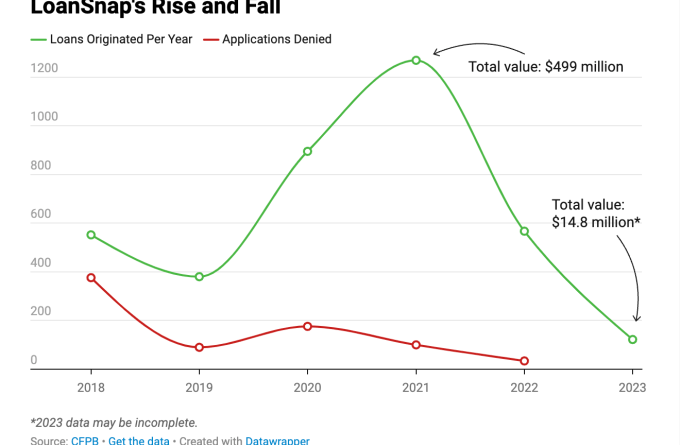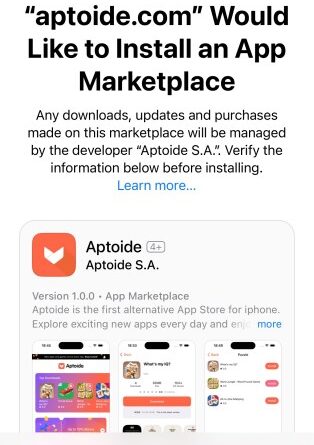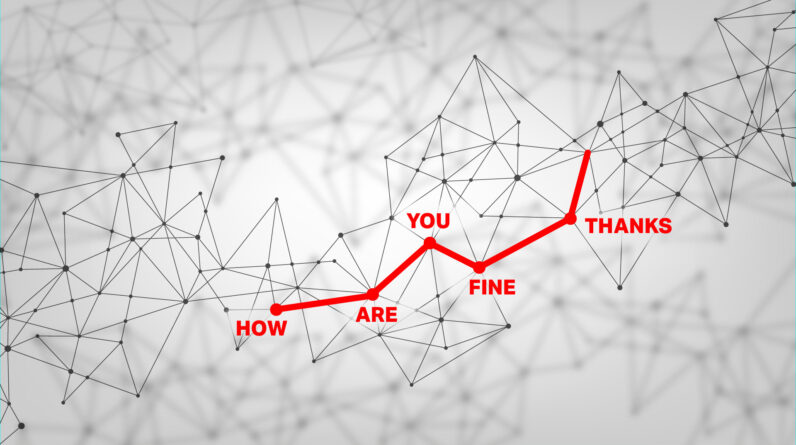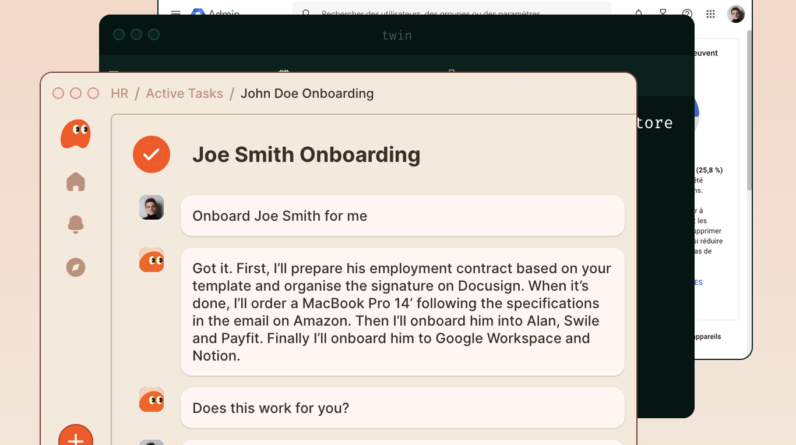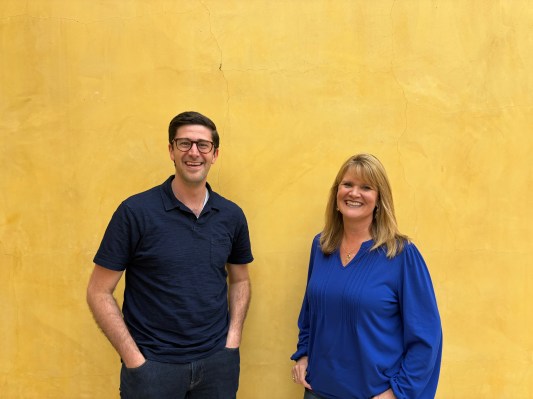
[ad_1]
Grants are the lifeblood of many organizations. But procuring them often turns out to be a time-consuming, labor-intensive process. Writing a proposal can take hundreds of hours, require the services of a specialized grant writer and cost thousands of dollars — narrowing the pool of potential applicants.
Sean Carroll, the former chief of staff and COO of the U.S. Agency for International Development (USAID), is well acquainted with the challenges around grant writing. At USAID — the stateside government agency responsible for doling out civilian foreign aid and development assistance — Carroll oversaw billions of dollars in grants disbursed.
“Writing a grant proposal can be an expensive process, with hundreds of hours spent designing programs, writing the content, responding to donor questions, doing compliance checks and ensuring each document is correctly formatted,” Carroll told TechCrunch in an email interview. “For smaller grassroots groups, winning or losing a proposal can be an existential crisis.”
Carroll’s solution? Have AI help with grant proposals.
Alongside Mustafa Hasnain (the founder of creative services agency Creative Frontiers), Syed Murtaza (an ex-corporate banker) and Gilberto Lopez (a Harvard academic), Carroll founded Grant Assistant, which offers a set of AI-powered tools designed to help grant writers think through their approach, target beneficiaries and surface potentially useful information from relevant documents.
Carroll stressed that Grant Assistant isn’t meant to replace professional grant proposal writers — which was my first thought, frankly. Rather, he said, it’s meant to support them in their professional work.
“Most document creation tools drop the user into a blank writing environment, expecting them to compose the entire document like a polished symphony from a single note,” he said. “Our experience demonstrates that this isn’t the best approach, as it’s counterintuitive to start from the ‘top’ of a complex and interconnected proposal. Put more simply, you can’t write an executive summary until you’ve completed the substance of the program.”
By contrast, Grant Assistant has users fill out a questionnaire containing questions similar to what a project consultant might ask — which informs an AI-generated draft of a grant proposal. A “suggestion engine” highlights content from documents that users upload to the platform to “enrich” grant proposals with references.
Carroll wouldn’t say exactly which generative AI model is powering Grant Assistant’s grant writing, save that it’s a “fine-tuned” model of some sort.
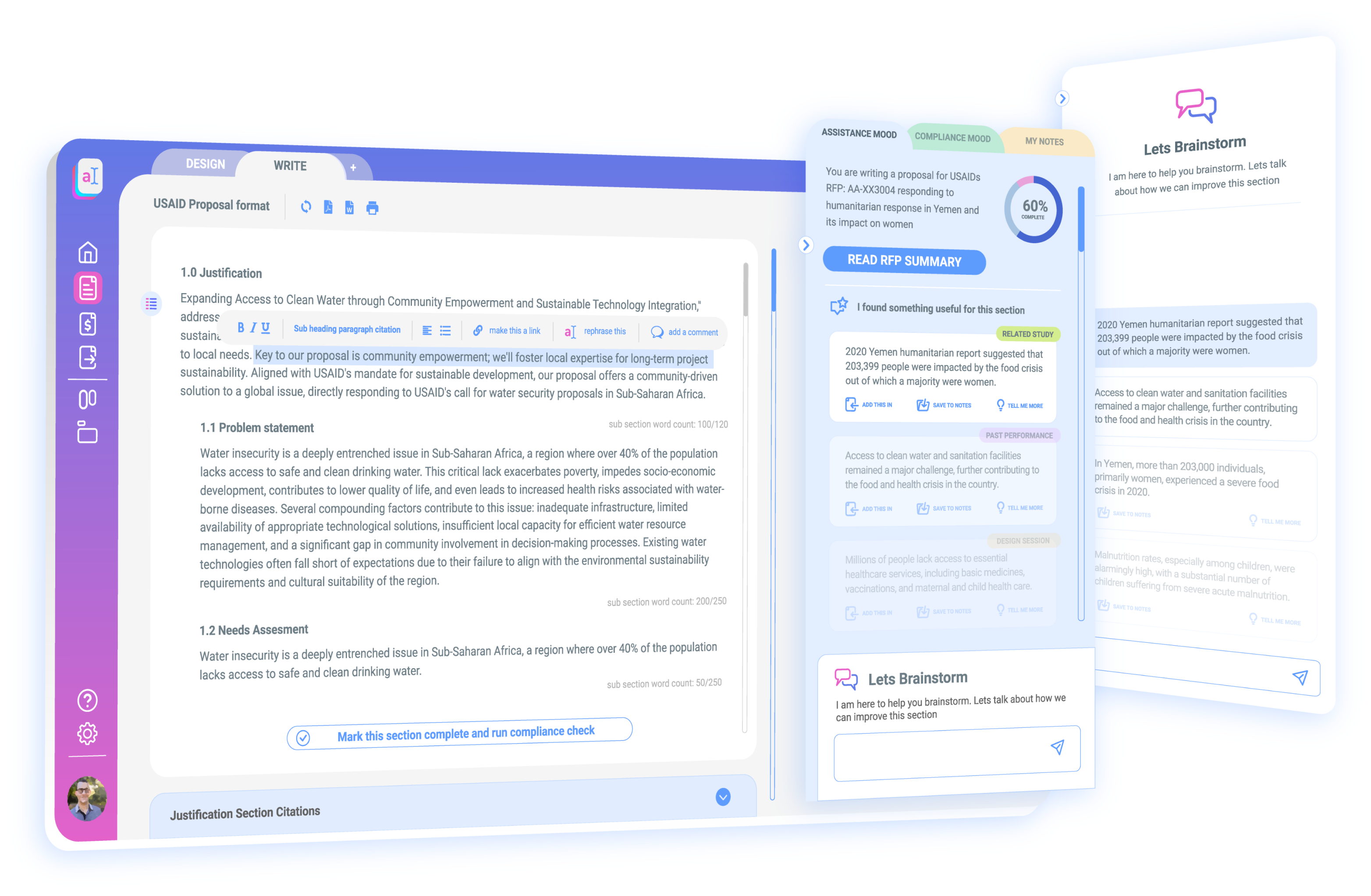
Image Credits: Grant Assistant
“Model fine-tuning has been done on USAID writing style guides and policy documents,” he added. “We’re training the tool on writing complex proposals for funders like USAID, the European Union, State-level agencies, the National Institutes of Health, the Department of Energy and others.”
What’s unclear to this writer is whether Grant Assistant, which also provides tools to manage proposal stages and reviews, keep track of impending deadlines and evaluate the state of grant proposal drafts, has properly mitigated one of the major limitations of generative AI today: hallucination.
Even the most sophisticated text-generating AI hallucinates, meaning it’s prone to presenting false or misleading information very confidently as fact. It’s not difficult to imagine how this might be problematic in writing a grant proposal — a grant proposal one would hope is fact-based and evidence-supported.
Carroll asserts that Grant Assistant’s suggestion engine, which brings in research and data points from documents along with citations, serves as a reasonable check on the platform’s proposal-drafting model. But I’d argue that it simply places the onus on the user to compare recommendations from the suggestion engine to copy generated by the proposal-drafting model.
To throw Grant Assistant a bone, it’s early days for the startup, which has a team of eight people and is predominantly self-financed excepting a $200,000 equity round and a $50,000 grant from Atlantic Philanthropies, a private foundation. I’d hope that, as time goes on, Grant Assistant develops more reliable, concrete ways to combat hallucination and its effects — particularly given all that’s on the line with grant awards.
In the near term, the company’s focus appears to be on customer acquisition, primarily. Grant Assistant is pre-revenue. But the startup has struck non-binding agreements with government contractors in the international development space, Carroll claims.
With any luck, those non-binding agreements will turn into contracts — and ammunition against Grant Assistant rivals like Fundwriter.ai and Grantable.
“While there are other organizations in the grant writing space, they lack the robust integrated tools, intuitive AI and practical user flow of Grant Assistant,” Carroll said. “We believe that Grant Assistant will dramatically reduce the time and cost spent on creating a proposal, letting mission-driven large organizations focus those saved resources on crucial program delivery while small organizations can better compete with their ideas.”
[ad_2]
Source link

